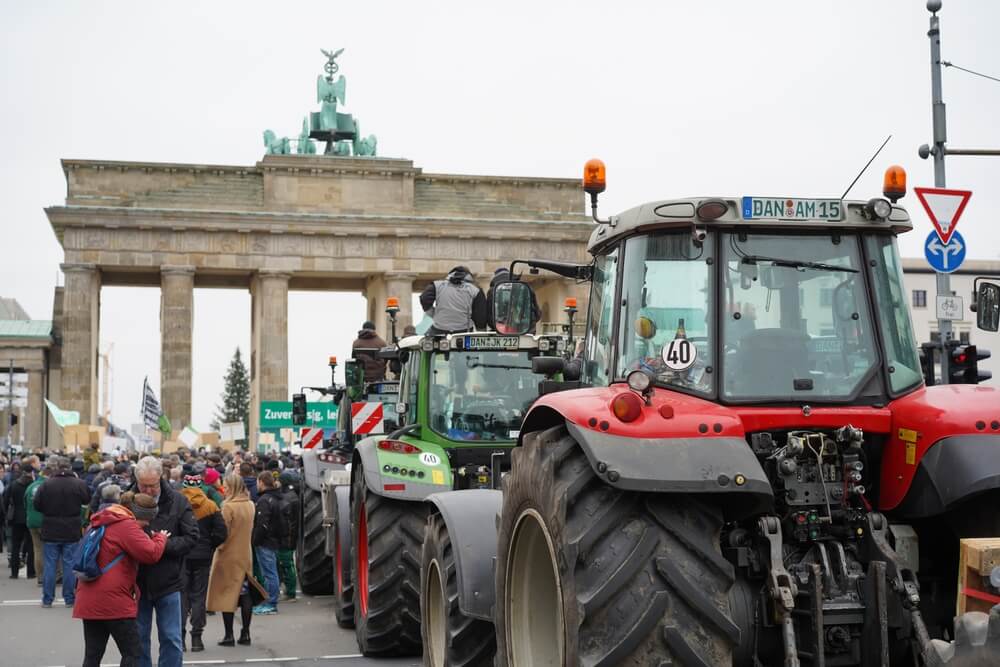The European Union has raised the bar and set even more ambitious goals towards complete decarbonisation and reduction of greenhouse emissions.
The climate policy of the 27-member bloc, otherwise demanding when it comes to reducing harmful gas emissions, is now even more ambitious, seeking an even more efficient energy transition.
However, the new, more ambitious EU plan comes at a time when it will be sensitive to political criticism, given that it will be tested by opponents in the forthcoming elections for the European Parliament next June.
According to the initiative of the European Commission, the set target is the emission of greenhouse gases to be 90% lower than in 1990 by 2040.
This newly set goal comes as a new obligation assumed by the EU, among the existing climate targets - to reduce gas emissions by 55% by 2030 and to be carbon neutral by 2050.
Self-confidence in achieving goals
With this, the EU has practically confirmed the current time frame for the fulfilment of green targets, even though, with the new milestone not until 2040, it has confirmed it as its obligation.
The Commission and the member states are confident that the ambitious goals are achievable. However, at the same time, they assume a significant obligation to ensure that the entire transition takes place without numerous economic disruptions.
The plan, now published by the outgoing European Commission, is advisory. However, the following EU administration after the next June elections for the European Parliament will have an obligation to turn it into legislation if there is no change in the political attitude of the Bloc members by then.
The Europeans' political motivations for ambitious green plans lie in their desire to assert global leadership in the green transition
The Europeans' political motivations for ambitious green plans lie in their desire to assert global leadership in the green transition. The goal of becoming carbon neutral by 2050 and emitting less CO2 than it could absorb makes Europe the first global region that will be able to do so.
The transition towards this goal is the principal development model for the EU. The Union wants to maintain its global influence, one of the few remaining, through leadership in this field.
However, achieving the goals of the green transition is associated with internal economic and political risks, particularly after adopting the obligation to reduce the emission of harmful gases by 90% by 2040.
How to satisfy both farmers and green targets?
The EU has a good transit time in fulfilling those obligations, and the goals seem achievable. At the end of 2022, it reduced gas emissions by 33% compared to 1990, which makes the first goal of reducing emissions by 55% by the end of the decade realistic.
However, the EU is still not out of the crisis regarding farmers protesting across the continent. They see the green goals as a significant obstacle to their better economic and social position.
Staying on course to achieve ambitious goals will not be possible without compromises with farmers.
 Staying on course to achieve ambitious goals will not be possible without compromises with farmers
Staying on course to achieve ambitious goals will not be possible without compromises with farmers
Their production represents the next phase in implementing the green agenda, with agriculture projected to undergo the most adjustment given its 10% contribution to greenhouse gas emissions.
Recent negotiations between farmers and national governments, and with the EU administration, have shown that the speed of their adaptation is not keeping up with the planned pace envisioned by green policymakers.
They have won concessions regarding fallow land and a postponement of diesel tax increases (in France). However, the fight over fuel taxation for agricultural machinery will remain a training ground for tough battles between farmers and governments across Europe.
What will the right-wingers say?
Ensuring a "fair and just transition", as requested in the new EU documents, will not be easy, particularly after the latest confirmation of staying on course for ambitious green goals.
The existing green optimism could be reduced if the expectations about more significant influence of the right in creating EU policies after the elections next June become a reality.
The greatest reservations about the new green plan of the European Commission came from the centre-right group
Conservatives and right-wingers across the EU will not have much forgiveness if the goals of the green transition prove to be an obstacle to the economic position of industry and the population.
After all, the greatest reservations about the new green plan of the European Commission came from the centre-right group (European People's Party - EPP), a party of the president of the Commission, Ursula von der Leyen.
Her party colleague from the CDU, Member of the European Parliament Peter Liese, said that "it was easy to fix a figure," but that even during the implementation of the current plan, "they have seen more and more how ambitious it was”.